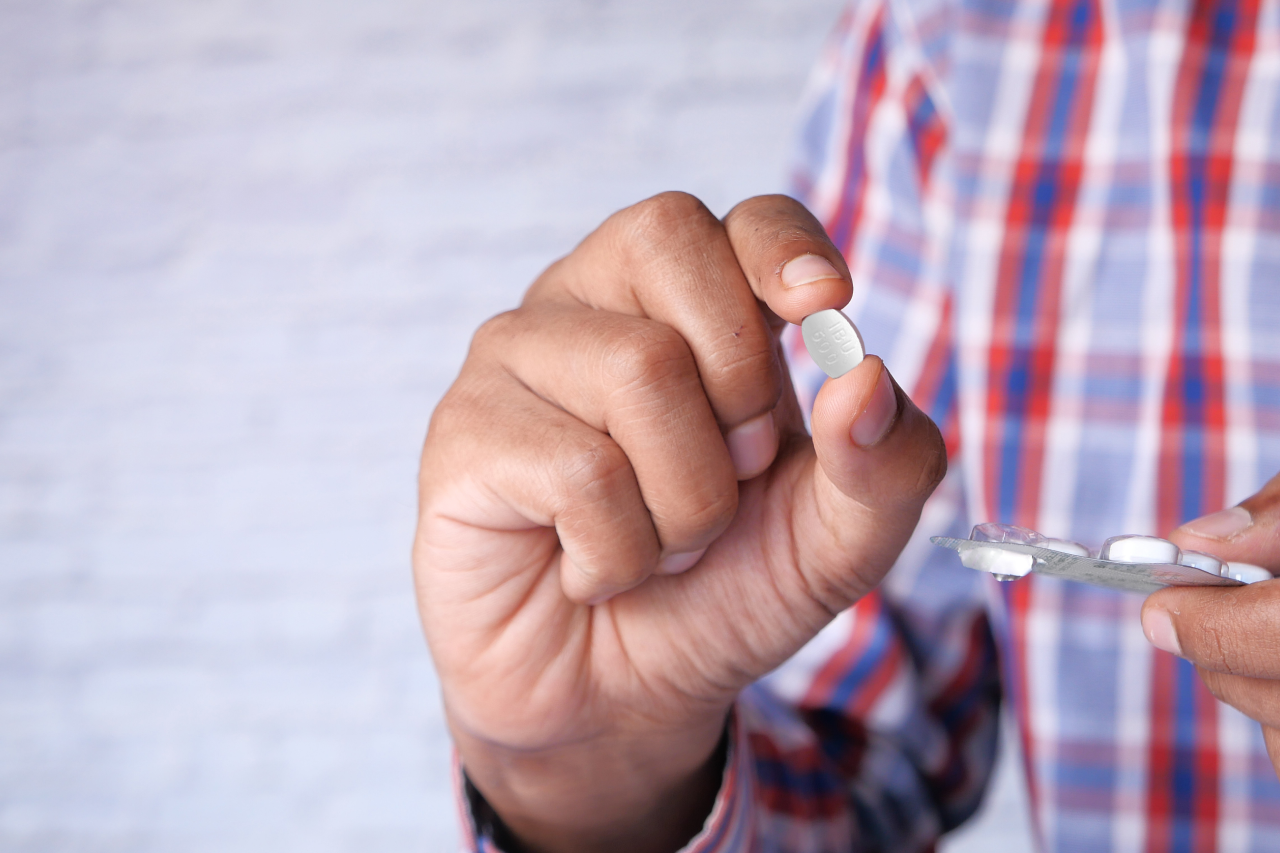In the realm of pain relief and fever reduction, Ibuprofen has become a household name. As one of the most commonly used over-the-counter drugs, Ibuprofen has garnered a reputation for its effectiveness and accessibility. This nonsteroidal anti-inflammatory drug (NSAID) has proven to be a reliable ally in managing a wide range of conditions, from minor headaches to arthritis-related discomfort.
It’s commonly used as a pain reliever, fever reducer, and anti-inflammatory medication. It is available over-the-counter and in higher strengths with a prescription. Ibuprofen works by inhibiting the production of prostaglandins, substances in the body that play a role in inflammation and pain. It is often used to alleviate symptoms associated with conditions like headaches, menstrual cramps, dental pain, muscle aches, arthritis, and minor injuries.
Ibuprofen works by inhibiting the production of specific chemicals in the body called prostaglandins. Prostaglandins are substances that play a key role in promoting inflammation, pain, and fever as part of the body’s natural immune response.
Specifically, ibuprofen blocks the action of enzymes known as cyclooxygenases (COX-1 and COX-2) involved in the production of prostaglandins. By inhibiting COX enzymes, ibuprofen decreases the synthesis of prostaglandins, reducing inflammation and its associated symptoms.
COX-1 enzymes are constitutively present in various tissues throughout the body, including the stomach lining and blood vessels, and play a role in normal physiological functions. COX-2 enzymes, on the other hand, are inducible enzymes that are primarily upregulated at sites of inflammation.
By selectively inhibiting COX-2 enzymes, ibuprofen acts to specifically target inflammation while having minimal effects on COX-1 enzymes. This selectivity helps to reduce the risk of adverse gastrointestinal effects that may be associated with non-selective NSAIDs.
As a result of the reduced production of prostaglandins, ibuprofen effectively reduces pain and swelling associated with inflammation and decreases fever by acting on the hypothalamus, the part of the brain that regulates body temperature.
Continue reading
For what conditions or diseases is ibuprofen medication prescribed?
Pain relief: Ibuprofen is widely used to alleviate mild to moderate pain caused by different factors such as headaches, toothaches, menstrual cramps, muscle aches, and joint pain. It can provide temporary relief from discomfort and reduce inflammation in affected areas.
Inflammation reduction: Due to its anti-inflammatory properties, ibuprofen is prescribed to reduce inflammation associated with conditions like arthritis, including rheumatoid arthritis and osteoarthritis. It helps to reduce swelling, stiffness, and joint pain, enhancing mobility and overall comfort.
Fever reduction: Ibuprofen is also effective in reducing fever, making it a common choice for managing fevers caused by various illnesses, including common colds, flu, and infections. It helps to bring down elevated body temperature and provide relief from associated symptoms.
Migraine treatment: For individuals experiencing migraines, ibuprofen can be prescribed as part of a treatment plan. It can help to lessen the intensity and duration of migraines, alleviate associated symptoms such as nausea and sensitivity to light or sound, and improve overall well-being during migraine episodes.
Here are some guidelines for using ibuprofen safely and effectively:
Read the label: Carefully read and follow the instructions provided on the packaging or label. These guidelines will specify the recommended dosage and frequency of use.
Start with the lowest effective dose: Begin with the lowest dose recommended for your age group and condition. If necessary, the dosage can be increased gradually but under the guidance of a healthcare professional.
Take with food or milk: To minimize the chances of stomach irritation or upset, it is advisable to take ibuprofen with food or a glass of milk.
Stay within the recommended daily limit: Do not exceed the maximum daily dosage specified on the packaging. Taking excessive amounts of ibuprofen can lead to adverse effects and potential complications.
Avoid long-term use without medical advice: It is typically intended for short-term relief. If you require extended use for chronic pain management, consult a healthcare professional to assess its safety and potential alternative options.
Use for the appropriate conditions: Ibuprofen is effective for a variety of conditions, including headaches, muscle pain, menstrual cramps, and arthritis. However, it may not be suitable for everyone, especially those with certain medical conditions or allergies. Consult your doctor or pharmacist if you have any concerns or questions regarding your specific condition.
Side Effects
Upset stomach: It may cause stomach irritation and discomfort, leading to symptoms like nausea, vomiting, or indigestion.
Heartburn: Some people may experience a burning sensation in their chest or throat, known as heartburn, after taking ibuprofen.
Headache and dizziness: It has been known to cause headaches and dizziness in some individuals.
Skin rash: In rare cases, It can lead to allergic reactions, which may manifest as a skin rash or hives.
Swelling or fluid retention: It can sometimes cause fluid retention, leading to swelling or bloating, particularly in the hands, feet, or legs.
It’s important to note that these are general side effects and there may be other less common or more severe adverse reactions associated with ibuprofen. If you experience any unusual or severe symptoms while taking ibuprofen, it is recommended to consult a healthcare professional.
Symptoms of overuse may include:
- exhausted
- drowsiness
- stomach ache
- nausea
- vomiting
- difficulty breathing or slow breathing
- dizziness
- rapid eye movements that cannot be controlled
- blue discoloration around the lips, mouth and nose
Conclusion
It is important to use it responsibly and follow the recommended dosage instructions, as exceeding the recommended amount or using it for prolonged periods can increase the risk of adverse effects.
Individuals with certain medical conditions or taking specific medications should consult a healthcare professional before using it to ensure its suitability and prevent potential interactions. It is also worth exploring alternative approaches to pain management, such as lifestyle changes or other medication options, to minimize reliance on Ibuprofen.
Ultimately, with proper usage and consideration of one’s individual circumstances, it can be a valuable tool in managing pain and inflammation effectively.
FAQs
What is Ibuprofen?
It is a nonsteroidal anti-inflammatory drug (NSAID) that is commonly used to relieve pain, reduce inflammation, and lower fever.
What conditions can Ibuprofen treat?
It can be used to alleviate symptoms associated with various conditions, including headaches, muscle aches, dental pain, menstrual cramps, arthritis, and fever.
How does Ibuprofen work?
It works by inhibiting the production of prostaglandins, substances in the body that play a role in pain and inflammation. By reducing prostaglandin levels, Ibuprofen helps to relieve pain and reduce swelling.
Is Ibuprofen safe to use?
When used as directed and for short-term use, It is generally considered safe for most people. However, it is important to follow the recommended dosage, taking into account factors such as age, weight, and existing medical conditions. Long-term or excessive use may have side effects, so it is advisable to consult with a healthcare professional when using it for an extended period.
Can Ibuprofen interact with other medications?
Yes, It can interact with certain medications, including blood thinners, certain blood pressure medications, and certain antidepressants. It is crucial to consult with a healthcare professional or pharmacist to ensure there are no potential interactions between Ibuprofen and any other medications you may be taking.
Are there any side effects of Ibuprofen?
Common side effects include stomach discomfort, heartburn, nausea, and drowsiness. In rare cases, it can also cause allergic reactions or more severe side effects. If you experience any concerning side effects, it is important to discontinue use and seek medical attention.





